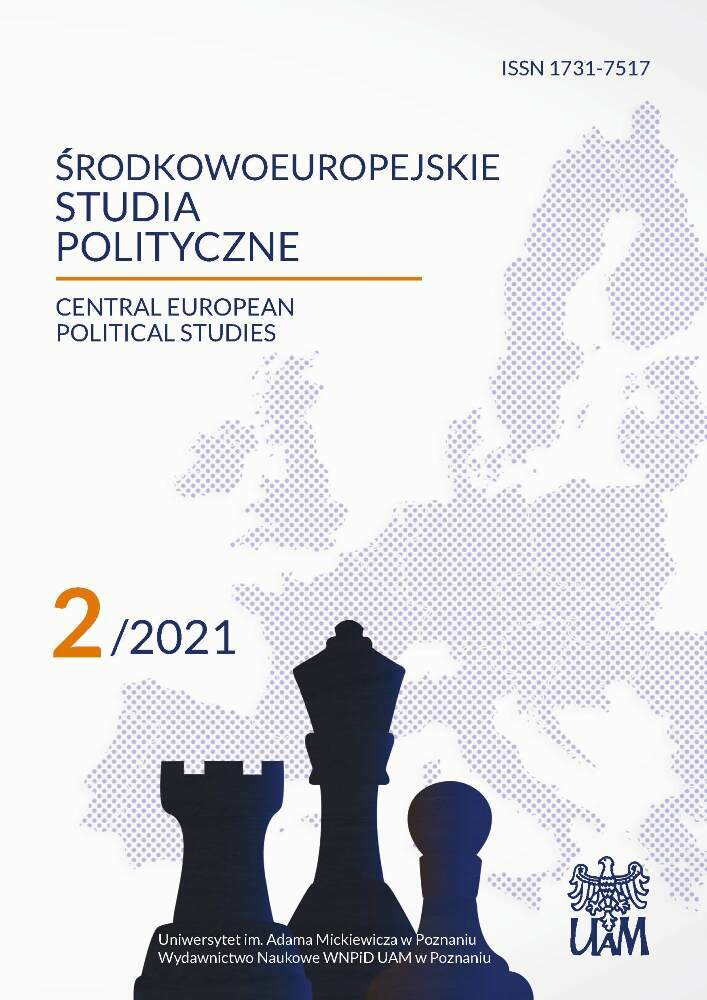Abstract
The article analyzes the transformation of concepts like liberty, equality, and democracy depending on the political, historical, and socio-cultural context. The author proposes to trace the significant difference in understanding “universal” socio-political values by using the classical liberal theories of B. Constant and A. de Tocqueville compared to modern international political processes. The author uses comparative and historical analysis methods, and a cultural and axiological approach to studying the ideology and politics. The argument is that the ancient understanding of liberty was irrelevant for the society of the XIX century, just as B. Constant’s classical understanding of liberty no longer meets the changing socio-political needs of people living in the XXI century. It does not consider a fundamentally new sphere of human activity like freedom and privacy in the digital world. Recognizing the value of democracy, the author observes that today, A. de Tocqueville’s approach is more than adequate for understanding political processes. For example, the post-election information warfare in the United States in 2020 shows the relevance of the specific understanding of Tocqueville’s democracy as a profound process of total equality spread. The main conclusion is that the political values familiar to modern discourse often are interpreted inadequately to reality since scientific understanding is rigid and lags behind the rapid development of information technologies, globalization, and virtualization.
References
Ankersmit F. R. (2014), Aesthetic politics: political philosophy beyond fact and value, Publishing House of Higher School of Economics, Moscow.
Baeva L. V. (2013), Existential risks of the information age, “Information Society”, vol. 3.
Batalov E. Ya. (2010), The problem of democracy in American Political Thought of the XX century, Progress-Tradition, Moscow.
Benoit J.-L. (2004), Understanding Tocqueville, Armand Colin, Paris.
Boudon R. (2005), Tocqueville today, Odile Jacob, Paris.
Callot E.-F. (1987), Liberal Thought in the nineteenth century through three moments of its formation: Benjamin Constant, Alexis de Tocqueville, Lucien A. Prévost-Paradol, Lyon.
Canfora L. (2006), Democracy: history of an ideology, Seuil, Paris.
Concepts and Definitions of Democracy: Anthology (2006), KomKniga, Moscow, URSS.
Constant B. (1993), On the liberty of the ancients in its comparison with the liberty of modern people, “Polis (Political Studies)”, vol. 2.
Constant B. (2000), Principles of politics suitable for all government, Classical French liberalism, Moscow.
Coutant A. (2008), Tocqueville and the democratic constitution, Mare et Martin, Paris.
Drescher S. (1968), Dilemmas of Democracy: Tocqueville and Modernization, University of Pittsburgh Press, Pittsburgh, PA.
Frolov E. D. (2011), Benjamin Constant and the Birth of the modern concept of the Ancient civil society, “Vestnik Sankt-Peterburgskogouniversiteta. Series 2”, vol. 3.
Gutorov V. A., Shirinyants A. A. (2020), Liberal tradition and modern anti-liberalism, “Bulletin of the YankaKupala Grodno State University. Series 1. History and Archeology. Philosophy. Political Science”, vol. 12 (3).
Harrison L. E. (2008), The Central Liberal Truth: how politics can change culture and save it, New Publishing House: Liberal Mission Foundation, Moscow.
Karimov A. V. (2012), Fundamental concepts of social freedom of the XIX century, “Socio-economic phenomena and processes”, vol. 9.
Krasheninnikova Yu. A. (2003), Lessons of classical French liberalism for modern liberal theory, “The Political Science”, vol. 4.
Krasin Yu. A. (2012), On his deathbed or at the origins of reincarnation? What is happening with democracy, “Bulletin of the RSUH. Series: Political Science. History. International relations”, vol. 19 (99).
Laboulaye E. (1905), Political ideas of Benjamin Constant, Russian Thought, Moscow.
Leroux R., Hart D. M. (2014), The golden age of French liberalism, Ellipses, Paris.
Manent P. (1993), Tocqueville and the nature of democracy, Fayard, Paris.
Mill J. St. (1994), Essays on Tocqueville and American society, Vrin, Paris.
Mill J. St. (1864–1865), Reasonings and researches political, philosophical and historical: In 3 ch., V. Kovalevsky, St. Petersburg.
Partsvaniya V. R., Khupeniya N. R. (2018), Transformation of values in the process of formation of postindustrial society, “Liberal Arts in Russia”, vol. 7, no. 4.
Plotnikov N. S. (2017), Notions of Liberty: Universalism and Cultural Particularity, “Ethical Thought”, vol. 17 (1).
Rosenblatt H. (2009), Eclipses and Revivals: Constant’s Reception in France and America (1830–2007), The Cambridge Companion to Constant, ed. H. Rosenblatt, University Press, Cambridge.
Rousselin P. (2014), Democracies in danger: how the world of tomorrow will be, Paris.
Runciman D. (2019), The confidence trap: history of the crisis of democracy from the First World War to the present day, Publishing House of Higher School of Economics, Moscow.
Salmin A. M. (2005), The ideological heritage of A. Tocqueville and the modern political tradition of the West, “Journal of Political Philosophy and Sociology of Politics’ Politiya. Analysis. The chronicle. Forecast”, vol. 3.
Tavadova A. V. (2016), Between John Stuart Mill and Alexis de Tocqueville: two concepts of freedom, “Bulletin of the Moscow University. Series 18. Sociology and Political Science”, vol. 2.
Tocqueville A. de (1893), Memoirs, Typo-lithography by V. Richter, Moscow.
Tocqueville A. de. (1992), Democracy in America, Progress, Moscow.
Todorov T. (1997), Benjamin Constant: the democratic passion, Hachette literatures, Paris.
Tsaregorodtsev S. S., Shirinyants A. A. (2018), In Search of Meaning: Ideas as a Factor of politics, “Bulletin of the Russian Nation”, vol. 1 (59).
Varzin A. V. (2011), “Freedom” in vocabularies of the 19-th – beginning of the 20-th centuries: reflection of senses transformation under the influence of liberal ideology, “Political linguistics”, vol. 1 (35).
Vidal-Naquet P. (2000), Greeks, historians, democracy: the big gap, Paris.
Wolin S. (2001), Tocqueville Between Two Worlds, Princeton University Press, Princeton, NJ
License
Copyright (c) 2021 Olga Puchnina

This work is licensed under a Creative Commons Attribution 4.0 International License.

